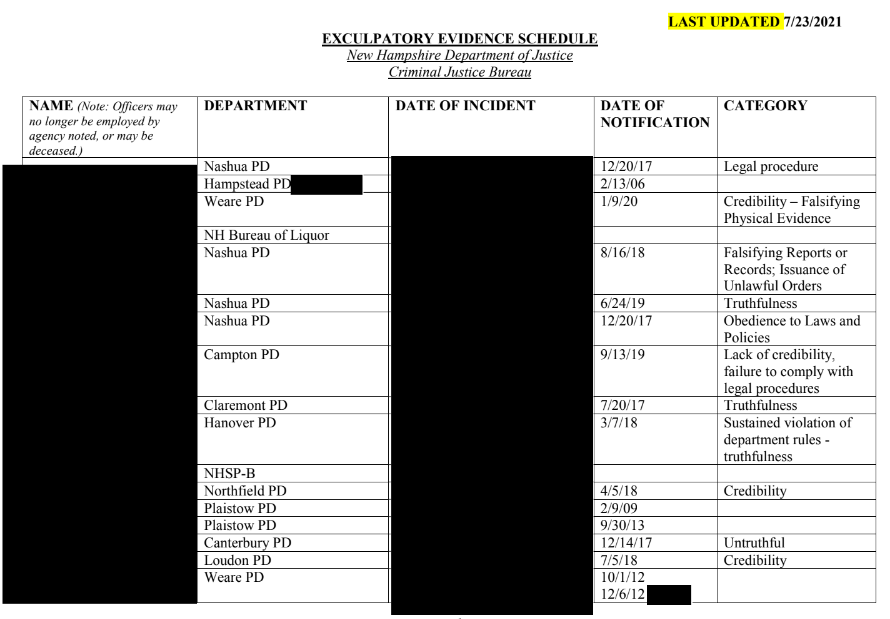By NANCY WEST, InDepthNH.org
NASHUA – The lawsuit seeking the unredacted Laurie List of dishonest police will continue even though five of the newspapers and ACLU-NH that originally sued the attorney general to get the list have withdrawn saying it is moot now that HB 471 has been signed into law.
The state Supreme Court sent the case back to Judge Charles Temple in Hillsborough County Superior Court South after agreeing with him that it was a public document, but sought to have him decide whether the officers on the Laurie List, also known as the Exculpatory Evidence Schedule, have privacy rights.
The case was put on hold as legislators worked to file HB 471 that they say will make the Laurie List public. Gov. Chris Sununu signed the bill into law Sept. 7 and the five newspapers and ACLU-NH withdrew from the court case that day.
But the lead plaintiff, New Hampshire Center for Public Interest Journalism, believes the lawsuit should continue and remains in the suit represented by Andru Volinsky.
“Even if the legislation is adopted precisely as drafted, the legislation strikes the wrong balance between the public’s right to know about the functioning of law enforcement officers and departments where serious misconduct allegations exist versus the privacy of individual officers,” Volinsky wrote in court records.
Any officer on the list could tie up the release of his or her listing by filing litigation that presents a due process claim and prevent release of the listing until that litigation is completed, which could take years, Volinsky said, noting the new law makes keeping the list voluntary.
The five newspapers and ACLU-NH agree with the Attorney General’s Office: “The proposed statute (House Bill 471) codifies a recommendation from the New Hampshire Commission on Law Enforcement, Accountability, Community, and Transparency (‘LEACT Commission’) that the EES be made public after every officer on the list has been notified that he or she is on the EES and has been informed that he or she has up to 180 days to decide whether to challenge his or her inclusion on the EES.”
The list is maintained to alert prosecutors when their constitutional obligation kicks in to provide criminal defendants with exculpatory evidence, that is evidence favorable to them, including evidence in a police officer’s confidential personnel file that indicates discipline for dishonesty or excessive force.
Judge Temple has approved the briefing schedule to move forward agreed upon by the Center and Department of Justice. Oral arguments are expected to take place sometime early next year.
According to the briefing schedule, on or before Oct. 25, the Department of Justice will file a motion to dismiss or motion for summary judgment regarding the effect of House Bill 471 on this action. By Dec. 10, the Center will file its objection to the DOJ’s motion. Before Dec. 20, the DOJ will file any reply to the Center’s objection and any further replies from the Center by Jan. 8, 2022.
The parties asked that the court to schedule oral argument after that.
On Sept. 7, Judge Temple approved the motion to withdraw from the suit filed by the Union Leader Corp., Telegraph of Nashua, Newspapers of New England, Seacoast Newspapers, Inc., Keene Publishing Corp., and the ACLU-NH.
“In light of today’s signing of HB 471 into law—Section 2 of which governing the Exculpatory Evidence Schedule will become effective 30 days after passage (on September 24, 2021)—these and only these specific six Petitioners hereby give notice that they are taking a nonsuit of their case against Respondent without prejudice,” according to the motion filed by attorneys Gilles Bissonnette and Gregory Sullivan.
Disclaimer: The New Hampshire Center for Public Interest Journalism publishes InDepthNH.org





